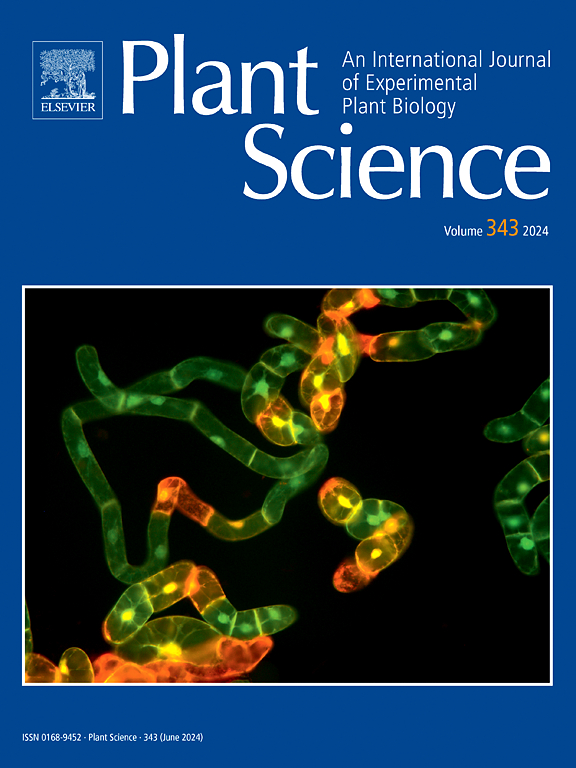The 14–3–3 gene AaGRF1 positively regulates cold tolerance in kiwifruit
IF 4.2
2区 生物学
Q2 BIOCHEMISTRY & MOLECULAR BIOLOGY
引用次数: 0
Abstract
Low temperatures severely threaten the growth and development of kiwifruit. Research has demonstrated that proteins belonging to the 14–3–3 family play a pivotal regulatory function in the ability of plants to resist stress. However, this specific roles of the genes in kiwifruit cold tolerance remain unclear. It had been identified that β-amylase gene, AaBAM3.1, exhibits a positive regulatory effect on kiwifruit's tolerance to low temperature. In our research, we obtained the Actinidia arguta 14–3–3 gene general regulatory factor 1 (AaGRF1) from yeast one-hybrid (Y1H) screening library of the AaBAM3.1 promoter; the expression level of AaGRF1 was enhanced by low-temperature stress. Subcellular localization, Y1H and dual-LUC assay indicated that the AaGRF1 protein resides within the nucleus and possesses the ability to interact with the AaBAM3.1 promoter. Moreover, we also studied the role of AaGRF1 gene in cold resistance of kiwifruit. When AaGRF1 was overexpressed in kiwifruit, the transgenic plants exhibited enhanced cold tolerance. The level of antioxidants and soluble sugars in these plants were elevated compared to wild-type (WT) lines. RNA-seq of the transgenic and WT lines revealed that AaGRF1 might interact with genes in the ‘ascorbate-glutathione’ and ‘starch and sucrose’ pathways, thereby enhancing the cold resistance of kiwifruit. In summary, we hypothesize that the 14–3–3 gene AaGRF1 may positively modulate the cold resistance in kiwifruit by accumulating more antioxidants and soluble sugars.
求助全文
约1分钟内获得全文
求助全文
来源期刊

Plant Science
生物-生化与分子生物学
CiteScore
9.10
自引率
1.90%
发文量
322
审稿时长
33 days
期刊介绍:
Plant Science will publish in the minimum of time, research manuscripts as well as commissioned reviews and commentaries recommended by its referees in all areas of experimental plant biology with emphasis in the broad areas of genomics, proteomics, biochemistry (including enzymology), physiology, cell biology, development, genetics, functional plant breeding, systems biology and the interaction of plants with the environment.
Manuscripts for full consideration should be written concisely and essentially as a final report. The main criterion for publication is that the manuscript must contain original and significant insights that lead to a better understanding of fundamental plant biology. Papers centering on plant cell culture should be of interest to a wide audience and methods employed result in a substantial improvement over existing established techniques and approaches. Methods papers are welcome only when the technique(s) described is novel or provides a major advancement of established protocols.
文献相关原料
公司名称
产品信息
索莱宝
D-luciferin sodium salt
 求助内容:
求助内容: 应助结果提醒方式:
应助结果提醒方式:


